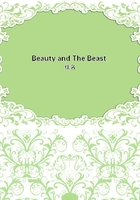
第47章 TWIN-LOVE.(5)
She fell upon his breast, and gave him kisses which were answered with equal tenderness. Suddenly he covered his face with his hands, and burst into a passion of tears.
"Jonathan! Oh Jonathan!" she cried, weeping with alarm and sympathetic pain.
It was long before he could speak; but at last, turning away his head, he faltered, "I am David!"There was a long silence.
When he looked up she was sitting with her hands rigidly clasped in her lap: her face was very pale.
"There it is, Ruth," he said; "we are one heart and one soul.
Could he love, and not I? You cannot decide between us, for one is the other. If I had known you first, Jonathan would be now in my place. What follows, then?""No marriage," she whispered.
"No!" he answered; "we brothers must learn to be two men instead of one. You will partly take my place with Jonathan; I must live with half my life, unless I can find, somewhere in the world, your other half.""I cannot part you, David!"
"Something stronger than you or me parts us, Ruth. If it were death, we should bow to God's will: well, it can no more be got away from than death or judgment. Say no more: the pattern of all this was drawn long before we were born, and we cannot do any thing but work it out."He rose and stood before her. "Remember this, Ruth," he said; "it is no blame in us to love each other. Jonathan will see the truth in my face when we meet, and I speak for him also. You will not see me again until your wedding-day, and then no more afterwards--but, yes! ONCE, in some far-off time, when you shall know me to be David, and still give me the kiss you gave to-day.""Ah, after death!" she thought: "I have parted them forever." She was about to rise, but fell upon the seat again, fainting. At the same moment Jonathan appeared at David's side.
No word was said. They bore her forth and supported her between them until the fresh breeze had restored her to consciousness. Her first glance rested on the brother's hands, clasping; then, looking from one to the other, she saw that the cheeks of both were wet.
"Now, leave me," she said, "but come to-morrow, Jonathan!" Even then she turned from one to the other, with a painful, touching uncertainty, and stretched out both hands to them in farewell.
How that poor twin heart struggled with itself is only known to God. All human voices, and as they believed, also the Divine Voice, commanded the division of their interwoven life. Submission would have seemed easier, could they have taken up equal and similar burdens; but David was unable to deny that his pack was overweighted. For the first time, their thoughts began to diverge.
At last David said: "For mother's sake, Jonathan, as we promised.
She always called you HER child. And for Ruth's sake, and father's last advice: they all tell me what I must do."It was like the struggle between will and desire, in the same nature, and none the less fierce or prolonged because the softer quality foresaw its ultimate surrender. Long after he felt the step to be inevitable, Jonathan sought to postpone it, but he was borne by all combined influences nearer and nearer to the time.
And now the wedding-day came. David was to leave home the same evening, after the family dinner under his father's roof. In the morning he said to Jonathan: "I shall not write until I feel that I have become other than now, but I shall always be here, in you, as you will be in me, everywhere. Whenever you want me, I shall know it; and I think I shall know when to return."The hearts of all the people went out towards them as they stood together in the little village church. Both were calm, but very pale and abstracted in their expression, yet their marvellous likeness was still unchanged. Ruth's eyes were cast down so they could not be seen; she trembled visibly, and her voice was scarcely audible when she spoke the vow. It was only known in the neighborhood that David was going to make another journey. The truth could hardly have been guessed by persons whose ideas follow the narrow round of their own experiences; had it been, there would probably have been more condemnation than sympathy. But in a vague way the presence of some deeper element was felt--the falling of a shadow, although the outstretched wing was unseen. Far above them, and above the shadow, watched the Infinite Pity, which was not denied to three hearts that day.